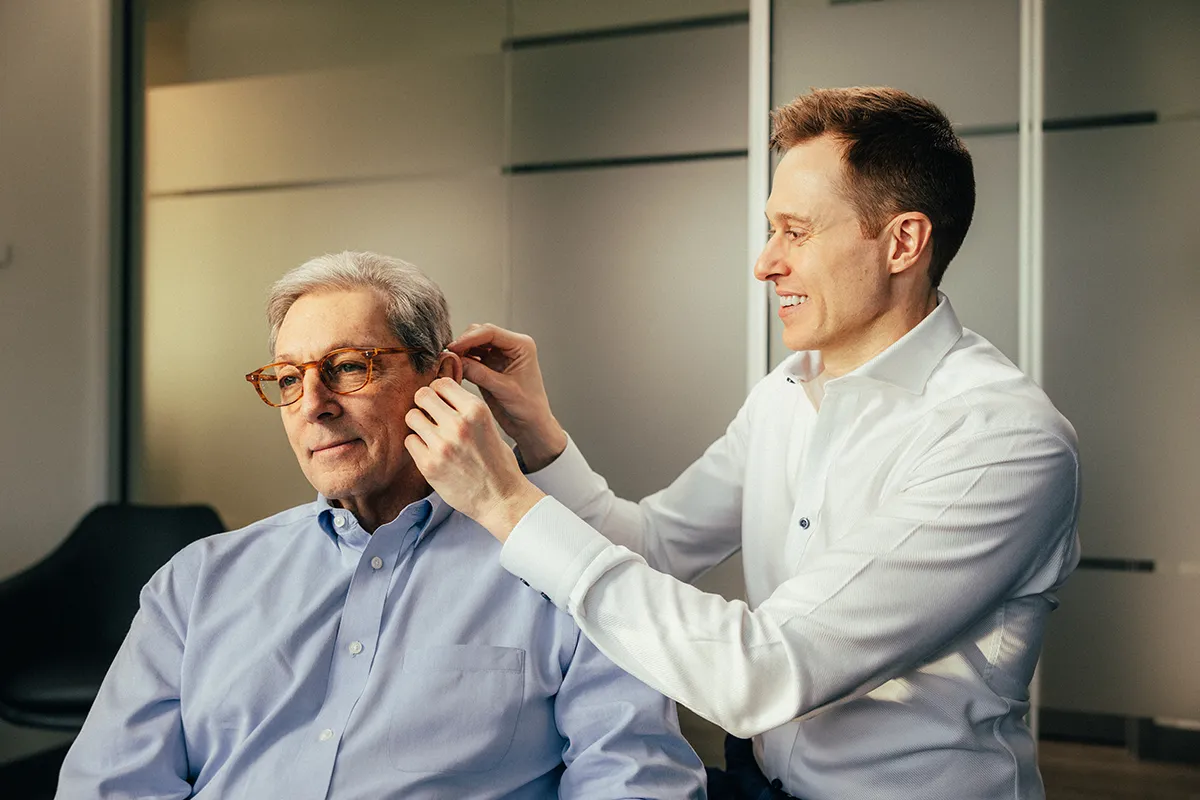Our commitment is to help you hear your absolute best.
Our team of audiologists have provided exceptional hearing solutions to countless residents in the Phoenix area and beyond. Our goal is simple... to help you hear your absolute best. Why get your hearing aids from anyone else?


Our Hearing Aid Success Protocol
At Applied Hearing Solutions, our proprietary Applied360 approach provides structured, evidence-based care throughout your entire hearing journey. From initial consultation to long-term maintenance, each service works together to deliver exceptional results and maximize your hearing potential.
Meet your local audiologists.
Our Audiologists, Doctors Cliff Olson, Leslie Balderas, & Kelsey Beck, are each committed to providing the highest quality of care by combining their extensive knowledge of Audiologic Best Practices, State-of-the-art diagnostic equipment, and premium hearing aid technology with a Person-Centered Care approach, to ensure optimal treatment outcomes.
Hearing aids and more from our top-rated Audiologists.
At Applied Hearing Solutions we specialize in Modern Hearing Aids, Comprehensive Hearing Testing, Earwax Removal, & Tinnitus Treatment.
Hear what our patients have to say about their experience at our practice.

"Cliff is a genius and an energizer bunny. My wife swears by these guys and has made a point to follow them as they change office locations."

"What an amazing experience! I’ve never had a more thorough exam and fitting. (...) I highly recommend Applied Hearing Solutions"

"Was very happy with the service and your knowledge. Would come back again!"

Wow, night and day from previous offices I've been to...the fine tuning of the hearing aids was remarkable. I think they saved my marriage.

I have been following Dr. Cliff Olson on You Tube for a couple of years. And I finally got a chance to visit him. He did an amazing job!

After getting the runaround from a local ENT office and feeling like they weren’t listening to my needs and concerns, I scheduled ...highly recommend them to anyone with hearing loss who wants the best care.

I searched hearing aids on Google and came across Applied Hearing Solutions—and the science and passion behind it all sold me...would highly recommend this team if you want the best results.

I have been going to Dr. Cliff for several years. He took the time to make necessary adjustments to my Phonak aids...his process is excellent making small adjustments at time allowing me to adjust to each new level.

"I can talk to people on the train again.Not just hearing aids, hearing aids adjusted to work for me!Trust them to perfect a pair for you."

"I highly recommend Dr Olsen and Dr Balderas. Their attention to detail and personalized care has made a huge difference in my ability to hear correctly."

"I would highly recommend Dr. Olson as he has treated my mom for a couple of years now and he is very knowledgeable, caring and thorough."

They spent more time than expected trying to help and we couldn't be more grateful. Their office is gorgeous, great location and THIS is the place if you have hearing issues! Thank you Diane, Kelsey and Dr. Balderas!!!

Audiologists Dr. Olson and Dr. Cook listened to my issues, conducted a high quality hearing test, and recommended solutions. I appreciate Applied Hearing Solutions approach to hearing aids involving multiple visits to get things adjusted just right.

Very welcoming ! Dr K Beck was great, explaining everything, very kind and helpful. Ashley & Savanna were really great! Would highly recommend this office.

The staff are very friendly, and I was thrilled to find folks so easy to work with and willing to help. Highly recommend!

Excellent diagnosis and fitting...Dr. Olson and staff provide a great experience...great choice - recommended.
Where Can I Find an Audiologist Near Me in Phoenix?
Applied Hearing Solutions provides gold standard audiological care at 4045 E Union Hills Dr Suite #D128 in Phoenix, AZ. Our experienced audiologists - Dr. Cliff Olson, Dr. Leslie Balderas, and Dr. Kelsey Beck - offer comprehensive hearing services following Best Practice protocols, including advanced hearing aid fittings using real ear measurements. With state-of-the-art technology and a patient-centered approach, we help Phoenix residents find the right hearing solutions for their unique needs. Call us at 602-877-0000 to schedule your consultation.
Call us at 602-877-0000North Phoenix Hearing Aid Clinic Location & Questions
4045 E Union Hills Dr Suite #D128
Phoenix, AZ 85050
602-877-0000
Hours: M-F, 8:00am - 5:00pm



















